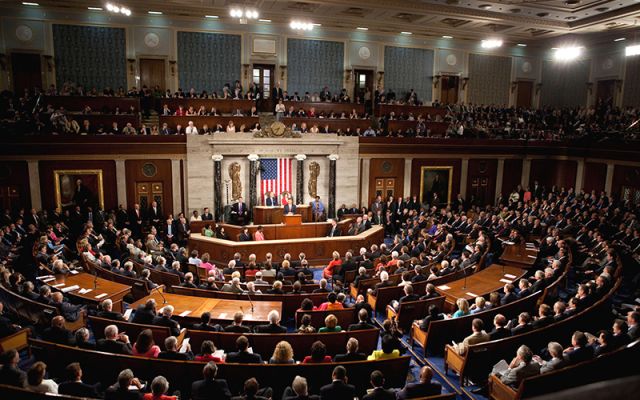| Online: | |
| Visits: | |
| Stories: |
US Congress: Government by Blackmail?

Congress has just shafted you in the worst way possible … via the “rider” process (hint: you’re the horse). Let me explain by way of metaphor.
Blackmail
Let’s say you’re in the process of buying a house. You love the new place and you’re confident the deal will go through, so you’ve sold your existing home. But the seller is a canny and unprincipled fellow. He knows you need to move in soon. So at the last minute he inserts new clauses in the sale contract: He won’t fix the roof first. He’s taking the appliances. Oh, and he’s discovered a crack in the foundation — that’s your problem, too.
Omnibus Spending
Congress has just done something like that. As is the case every year, they need to pass a last-minute “omnibus” spending and tax-adjustment bill since they can’t be bothered to do their jobs the rest of the year.
And as they do every year, they’ve slipped in some last-minute amendments that would never pass under normal circumstances…
When my dad Bob Bauman was in Congress, the federal government’s budget process worked as follows:
First, the House passed an advisory “budget resolution.” Various House oversight committees, like Commerce and Armed Forces, then worked up their part of the budget. Each committee passed an appropriations bill to the floor of the House, where it was debated and approved. The Senate then weighed in; any changes were resolved in a conference with the House. Together, these bills were the federal budget.
The last time Congress actually passed every individual budget bill was for the 2002 fiscal year. The last time the House passed a budget resolution was in 2009. The Senate has gone for years without doing either.
Budget Resolution
Without a budget resolution, the House and Senate improvise like a mediocre jazz band. Critical steps in the process simply don’t happen, especially for large or controversial spending areas. But money still gets spent.
If a budget isn’t in place by the start of the fiscal year on October 1, the government shuts down. Congress avoids this by passing a short-term budget at current spending levels called a “continuing resolution.” This gives lawmakers more time either to write individual budget bills, or to wrap them together in an “omnibus bill” covering all 12 major appropriations areas.
In recent years, these omnibus budget bills have been packed with “riders” — unrelated policy provisions that otherwise wouldn’t be signed into law on their own. They are essentially a form of blackmail: Pass us or you’re not gonna get a budget, and everything stops.




